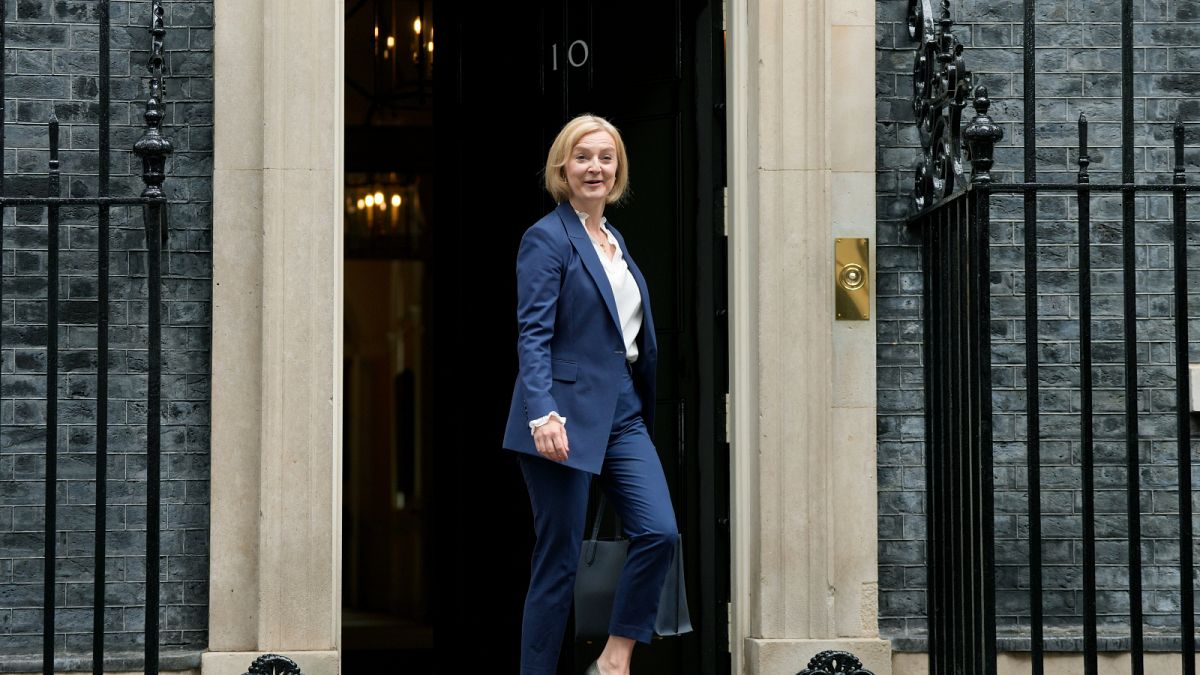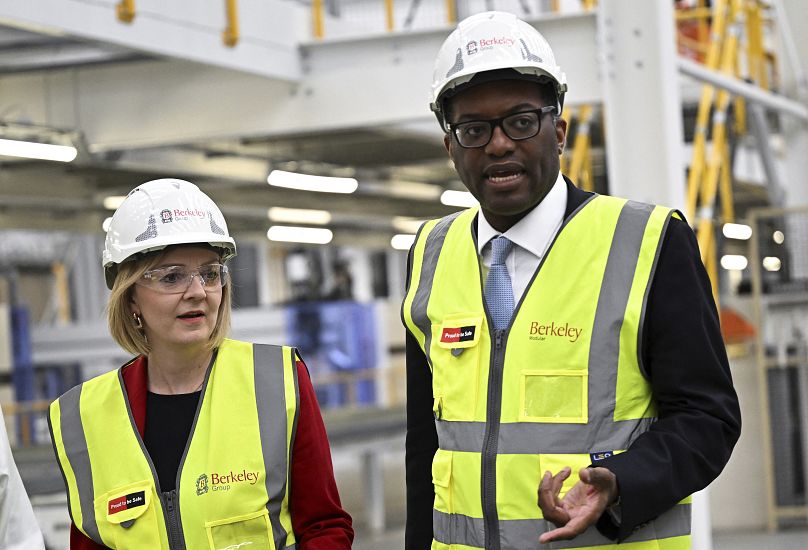The Bank of England made an emergency intervention on Wednesday after warning of a "material risk to UK financial stability".
Liz Truss, the UK prime minister, has defended her government's tax-cutting plans despite economic chaos since they were announced.
The Bank of England made an emergency intervention on Wednesday after warning of a "material risk to UK financial stability".
It came after the IMF urged the UK government to rethink its fiscal strategy that saw the pound plummet to a record low against the US dollar this week.
But on Thursday, Truss stood by planned tax cuts announced last Friday and said they were required to help grow Britain's economy.
"It is important the UK is on the front foot, we are pulling all the levers we can to drive economic growth," Truss told BBC Radio Kent.
"This is about making sure that people are going into the winter not worried about ultra high fuel bills. It was simply unconscionable that we could have allowed that to happen.
"It’s also important that we’re taking steps to improve growth levels in the economy."
The UN's International Monetary Fund said on Tuesday that Britain should reconsider its fiscal plan that would "likely increase inequality".
The UK's latest 'mini-budget' included tax cuts for the highest earners, with their tax rate dropping to 40 per cent from 45 per cent, alongside a one per cent cut for earners in the lowest band of income tax.
It also cancelled a planned rise in corporation tax from 19 per cent to 25 per cent and scrapped rules that limit bankers' bonuses.
The fiscal plan, which included a £2,500 annual price cap on household energy bills, requires £72billion of additional government borrowing in the next six months.
Kwarteng, who was appointed Chancellor on 6 September, said he believed the budget would boost economic growth in the UK.
On Wednesday, the Bank of England said it would buy long-dated government bonds -- issued to support public spending -- on "whatever scale is necessary".
The strategy was designed to reduce interest rates on government debt.
"The purpose of these purchases will be to restore orderly market conditions," the bank said in a statement, adding that the purchases would be underwritten by the Treasury.
IMF issues warning on UK tax cuts and inequality
On Tuesday, the International Monetary Fund urged the British government to rethink its tax-cutting budget.
"The nature of the UK measures will likely increase inequality," the agency said.
"The November 23 budget will present an early opportunity for the UK government to consider ways to provide support that is more targeted and re-evaluate the tax measures, especially those that benefit high income earners."
A former deputy governor of the IMF -- established in 1945 to ensure global financial stability -- said it was unusual for the agency to criticise a G7 nation.
Adnan Mazarei told the BBC that such statements are "common with regard to emerging market countries with problematic policies, but not often about G7 countries".
Keir Starmer, the leader of the UK's left-leaning opposition party Labour, urged the Conservative government to abandon its budget and recall parliament, which is currently in recess.
"The government has clearly lost control of the economy ... this is self-inflicted," Starmer told Sky News.
"What the government needs to do now is recall parliament and abandon this budget before any more damage is done."

